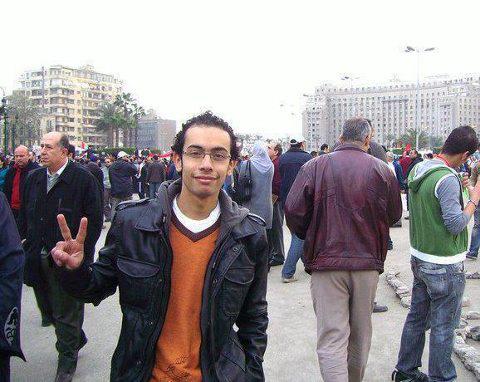By Marwa Al-A’asar
CAIRO: A new committee of forensic experts assigned to re-examine the case of 28-year-old Khaled Saeid took the oath before the Alexandria Criminal Court during a procedural hearing on Sunday.
“This is the usual legal procedure; the court asks the expert committee to take the oath before they examine the evidence and prepare their report,” lawyer Rafaat Nawar representing Saeid’s family told Daily News Egypt.
Saeid was allegedly beaten to death by two undercover policemen last June which spurred public outrage in Egypt and abroad.
The two policemen were referred to the criminal court on charges of cruel treatment, torture and wrongful arrest.
However, Nawar and a number of human rights lawyers who volunteered to represent Saeid’s family have continuously argued it was a case of premeditated murder and torture to death, citing eyewitnesses.
The three-member committee made up of prominent professors of forensic medicine from the universities of Cairo, Ain Shams and Alexandria, received the technical reports of Saeid’s death including the autopsy report after they took the oath.
The judge said the reports handed in to the three forensic medicine experts include all documents and reports delivered to the court up to the last hearing, the official Middle East News Agency (MENA) reported.
“The three professors are expected to present an expert report before the court in the next hearing slated for Sept. 24,” Nawar said.
Nawar predicts that in the coming court hearing the judge will decide when to announce the verdict. “I expect quite a tough ruling that puts an end to the case and ongoing debate over it,” he said.
A technical committee of professors from Alexandria University’s Faculty of Fine Arts was also formed after the June 30 hearing to inspect the graphic posthumous photograph of Saeid’s badly disfigured face.
“This committee will decide whether the photo was taken before or after the autopsy,” Nawar explained.
The initial autopsy reports are believed to be riddled with contradictions: one said Saeid’s death was caused by asphyxiation on a hashish wrap while another indicated the reason for his suffocation was a pack of marijuana. The two wraps were given different measurements.
A Facebook group launched to draw attention to Saied’s death is credited for galvanizing support for the mass protests against corruption, torture and police brutality, which eventually led to the ouster of former president Hosni Mubarak.


